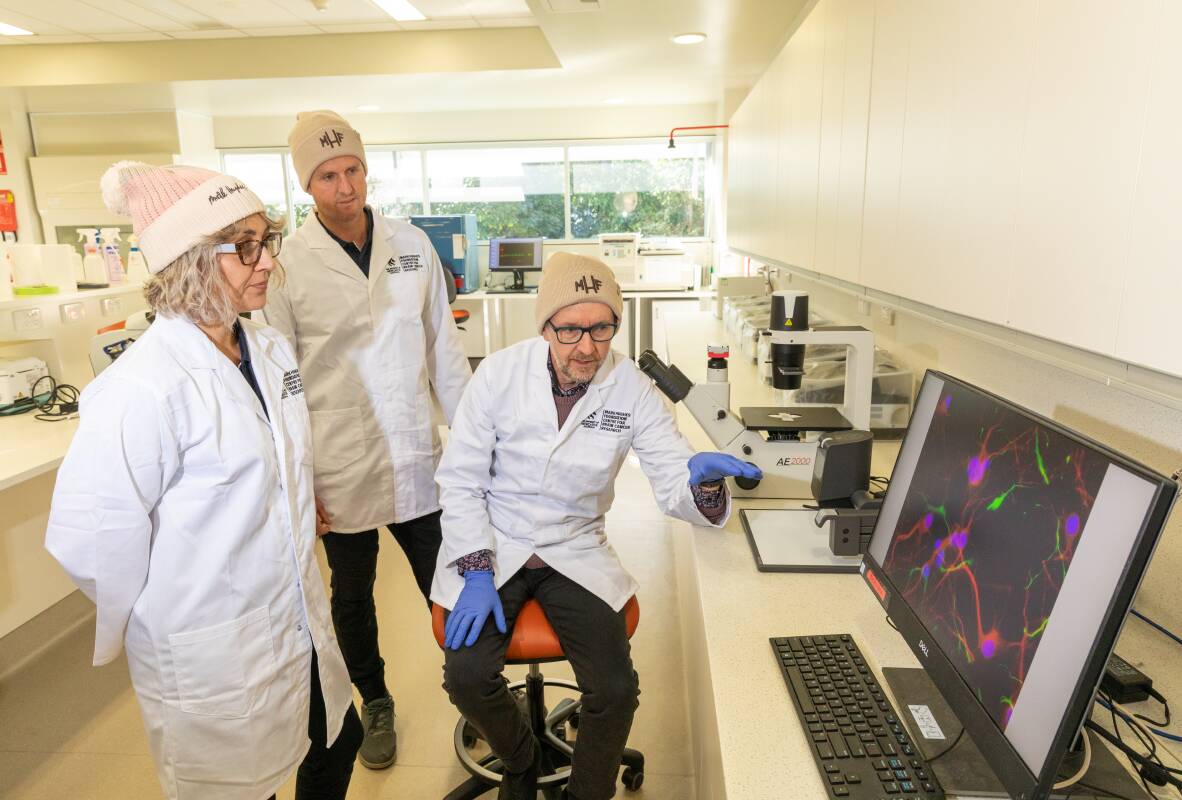
When top researchers meet in Newcastle on Thursday to step up the pursuit of a brain cancer cure, the Knights' two premiership victories will be part of their inspiration.
At the inaugural Brain Cancer Research Symposium, teamwork will be key to the mission ahead.
The University of Newcastle Mark Hughes Foundation Centre for Brain Cancer Research will host the event.
Hughes, a former Knights player, started his foundation after being diagnosed with brain cancer in 2013.
He will make the symposium's opening remarks.
"I have played team sport all my life. If a group is working together in the pursuit of a common goal, magic happens and premierships are won," he said.

On the quest for a cure, the centre's research director, Professor Mike Fay, said: "We're getting there, but we're not getting there fast enough".
"This is something the Mark Hughes Foundation has realised, so they're keen to support a collaborative research team."
Mark's wife Kirralee Hughes said "we're beyond proud of having all these researchers in this area".
Mrs Hughes, the foundation's co-founder, said the symposium would help "keep the momentum going".
For those affected, there is the desire to "want a cure tomorrow".
"It can take a while before there is an outcome, but we always try to push the boundaries and keep everyone on their toes.
"We're in a hurry to find a cure for the disease for Mark and so many other people."
Brain cancer is the leading cause of cancer death in children, and adults under 40 in Australia.
Professor Fay says there are several hopes for improved brain cancer treatment.
"We're not wanting to back one horse. We're wanting to spread our bets if you like because there's a whole lot of things looking interesting.
"We know a whole lot of stuff that hasn't worked in the past."
He said their approach was a bit like the Apple slogan, "think different".
"You've got to try and find a different way of looking at the problem," he said.
This includes targeting DNA damage repair, better diagnostics with blood-based tests and examining interactions between nerve cells and tumours.
"A good paper I read a few years ago was, 'how do we hit a moving target?' That's the heart of the problem.
"With radiotherapy and chemotherapy, we cause DNA damage to the tumour.
"The problem we have in brain cancer is the tumours are quite smart and repair that damage. So the tumour then survives."
A scientist at the centre, Dr Matt Lozinski, is examining experimental therapeutic drugs called DNA repair inhibitors.
"These are drugs that specifically block that DNA repair," Professor Fay said.
"They cause the tumour to die off more efficiently."
Dr Lozinski said the drugs appear to be making brain cancer cells "sensitive to treatment again after they have become resistant".
A key part of the centre's work is growing brain cancer tumours, donated by patients, in a lab at Hunter Medical Research Institute [HMRI].
"We have a special incubator with a camera to grow the tumours," Professor Fay said.
"It stains the cells, so we can see if they're starting to die. We can put different drugs in, use radiation and look at whether a combination of new therapies might be more effective."
This prevents such drugs being tried in patients "without knowing what's happening with the biology".
In another sign of progress, the University of Queensland has developed a blood test that involves brain cancer patients from Newcastle.
"They give some of their blood as they're going through treatment," Professor Fay said.
This is being stored in a biobank that the Mark Hughes Foundation funds.
The blood test helps track brain cancer after diagnosis, helping to determine if treatments are working.
Existing treatments for brain cancer patients are surgery, radiation and chemotherapy.
"It's usually a combination of all three," Professor Fay said.
To see more stories and read today's paper download the Newcastle Herald news app here.







